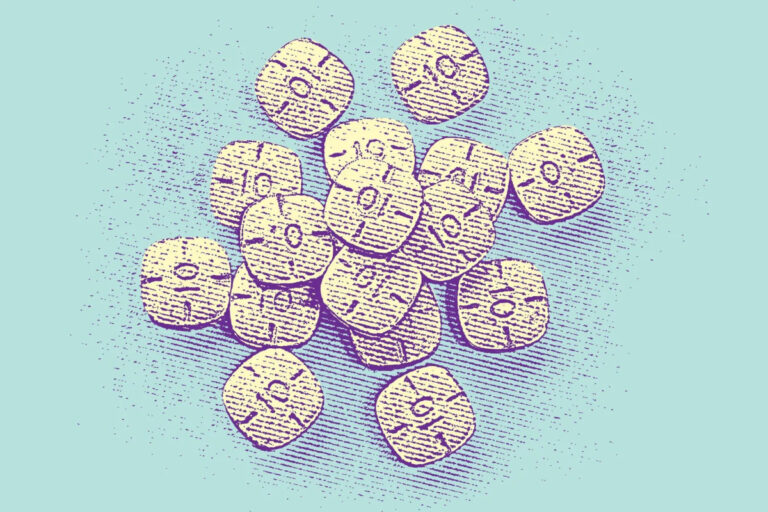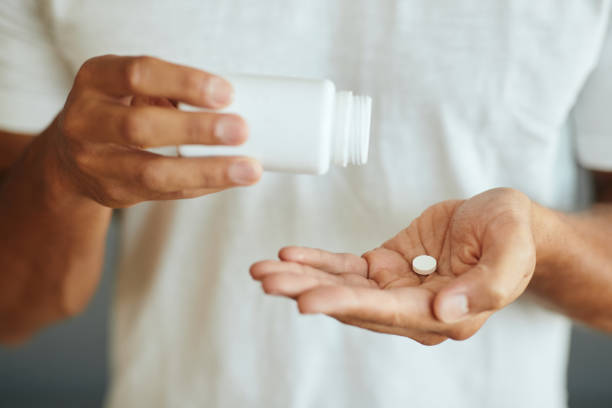Should You Use Modafinil for Depression? Here’s the Science
Depression affects mood, energy, sleep, and thinking. Some people continue to struggle with fatigue and cognitive problems even after trying standard antidepressants. Modafinil is a wakefulness-promoting medicine that is approved for narcolepsy, obstructive sleep apnea, and shift work disorder, not for depression. Researchers have studied it as an add-on option for people with persistent symptoms like fatigue or poor concentration. Here is what high-quality evidence shows so you can discuss it with your clinician.
What is modafinil and how might it help in depression?
Modafinil promotes wakefulness. In the United States it is approved for narcolepsy, obstructive sleep apnea as an adjunct to airway therapy, and shift work sleep disorder. Its use in depression is off label (FDA, 2015; Greenblatt & Adams, 2023).
Modafinil has several actions in the brain. Human imaging shows it blocks dopamine transporters and raises dopamine, including in the nucleus accumbens. This helps explain both alerting effects and some abuse risk (Volkow et al., 2009). It also influences norepinephrine, orexin, and histamine systems, which may support attention and wakefulness (Greenblatt & Adams, 2023).
In remitted major depressive disorder, a single 200 mg dose improved episodic and working memory on computerized testing. Effects were not seen for all domains and durability was not established (Kaser et al., 2017).
Bottom line: Modafinil may help with fatigue and certain cognitive symptoms. Benefits on core mood symptoms appear modest and are best supported when modafinil is used as an add-on rather than alone (Goss et al., 2013; Price & Taylor, 2005).
Is modafinil effective for treatment-resistant depression?
A 2013 meta-analysis of six randomized controlled trials in major depressive disorder and bipolar depression found that adjunctive modafinil or armodafinil produced a small but significant improvement in overall depression scores. Remission was more likely with modafinil than placebo, and fatigue and sleepiness improved consistently. Adverse events were similar to placebo across studies (Goss et al., 2013).
Individual trials in antidepressant partial responders also reported improved energy and wakefulness with adjunctive modafinil, though not every symptom improves in every patient (Goss et al., 2013).
Bottom line: Evidence supports modafinil as an adjunct for some patients with persistent fatigue or sleepiness despite antidepressants. It is not a first-line treatment for depression and should be used under medical supervision (Goss et al., 2013; FDA, 2015).
Does modafinil trigger mania or mood switching?
A large retrospective chart review of 191 patients, including those with bipolar disorder, found no cases of switching into mania or hypomania while taking modafinil. Tolerance and abuse were not observed in that series (Nasr et al., 2006). That said, the FDA label reports possible psychiatric reactions, including agitation, mania, delusions, and suicidal ideation, and advises caution in people with a history of mood or psychotic disorders (FDA, 2015).
Bottom line: Controlled data do not show a high switch risk, but careful monitoring is still important, especially in bipolar spectrum conditions (Nasr et al., 2006; FDA, 2015).
What about abuse potential?
Compared with amphetamines, modafinil has a lower reinforcing profile. Still, human imaging confirms dopamine transporter blockade and increased dopamine in reward-related regions after typical therapeutic doses. This means misuse is possible in vulnerable individuals. Modafinil is a Schedule IV controlled substance in the United States (Volkow et al., 2009; FDA, 2015).
Bottom line: Screen for substance use disorders, set clear treatment goals, and avoid unsupervised dose escalation (Volkow et al., 2009; FDA, 2015).
Side effects, interactions, and safety
Common effects: Headache, nausea, anxiety, and insomnia are most common (FDA, 2015; Greenblatt & Adams, 2023).
Serious but rare reactions: Serious rash including Stevens-Johnson syndrome and multi-organ hypersensitivity can occur. Stop the drug and seek care if rash or systemic symptoms develop (FDA, 2015).
Psychiatric warnings: Agitation, mania, hallucinations, and suicidal ideation have been reported. Monitor closely in those with a history of depression, bipolar disorder, or psychosis (FDA, 2015).
Drug interactions: Modafinil induces CYP3A4. It can reduce the effectiveness of steroidal hormonal contraceptives. Use an alternative or backup method during treatment and for one month after stopping (FDA, 2015). It can raise levels of some CYP2C19 substrates and lower levels of cyclosporine. Review all medicines with your clinician (FDA, 2015).
Pregnancy and breastfeeding: Human data are limited. The FDA label advises caution, and risk-benefit assessment is required. Discuss reliable contraception and pregnancy plans with your clinician before starting therapy (FDA, 2015; Greenblatt & Adams, 2023).
Who should avoid or use caution: People with a history of serious rash to modafinil or armodafinil, uncontrolled psychiatric illness, significant cardiovascular disease, or active substance use disorder should avoid or use with extreme caution under specialist care (FDA, 2015).
How is modafinil used in practice for depression?
Because depression is an off-label use, dosing is individualized. For approved sleep-wake indications, the usual adult dose is 200 mg once daily in the morning. Doses up to 400 mg have been used, but higher doses do not always give more benefit and may increase side effects (FDA, 2015; Greenblatt & Adams, 2023).
When considered for depression:
- Confirm a current diagnosis and assess severity, including fatigue and hypersomnia (Chand & Arif, 2023).
- Optimize antidepressant therapy and sleep disorder management first.
- If residual fatigue or sleepiness persists, discuss adjunctive modafinil. Start low and monitor sleep, mood, anxiety, blood pressure, and side effects at regular intervals (Goss et al., 2013; FDA, 2015).
- Reassess after two to four weeks. Continue only if benefits outweigh risks.
Important: Modafinil should be taken in the morning to limit insomnia. Avoid late-day doses (FDA, 2015).
Who might benefit most?
- Patients with major depressive disorder or bipolar depression who have partial response to standard therapy but continue to have daytime sleepiness or fatigue (Goss et al., 2013).
- Patients in remission who report ongoing cognitive issues, especially memory problems, recognizing that current evidence reflects short-term gains only (Kaser et al., 2017).
Who is less likely to benefit?
- Patients seeking a standalone antidepressant effect without optimizing first-line treatments.
- Individuals with active mania, psychosis, or substance misuse where risks may outweigh potential gains (FDA, 2015).
What does the evidence not tell us yet?
- Long-term effects on cognition and relapse prevention remain unclear.
- Optimal duration of adjunctive use has not been defined.
- Direct head-to-head comparisons with other augmentation options are limited (Kaser et al., 2017; Goss et al., 2013).
FAQs
Can I take modafinil at night?
No. Take it in the morning. Evening doses increase the chance of insomnia (FDA, 2015).
Does modafinil treat depression by itself?
Not usually. Evidence supports modafinil mainly as an add-on for fatigue or sleepiness in people already on antidepressants (Goss et al., 2013).
Will modafinil improve my memory long term?
A single dose improved memory in remitted depression in one trial. Long-term benefits are not established (Kaser et al., 2017).
Do I need backup birth control?
Yes. Modafinil can reduce the effectiveness of steroidal hormonal contraceptives during treatment and for one month after stopping. Use an alternative or backup method and discuss options with your clinician (FDA, 2015).
References
- U.S. Food and Drug Administration. (2015). PROVIGIL® (modafinil) tablets, for oral use, C-IV [Prescribing information]. U.S. Department of Health and Human Services. https://www.accessdata.fda.gov/drugsatfda_docs/label/2015/020717s037s038lbl.pdf
- Greenblatt, K., & Adams, N. (2023). Modafinil. In StatPearls [Internet]. StatPearls Publishing. https://www.ncbi.nlm.nih.gov/books/NBK531476/
- Goss, A. J., Kaser, M., Costafreda, S. G., Sahakian, B. J., & Fu, C. H. Y. (2013). Modafinil augmentation therapy in unipolar and bipolar depression: A systematic review and meta-analysis of randomized controlled trials. Journal of Clinical Psychiatry, 74(11), 1101–1107. https://doi.org/10.4088/JCP.13r08560
- Kaser, M., Deakin, J. B., Michael, A., Zapata, C., Bansal, R., Ryan, D., Cormack, F., Rowe, J. B., & Sahakian, B. J. (2017). Modafinil improves episodic memory and working memory cognition in patients with remitted depression: A double-blind, randomized, placebo-controlled study. Biological Psychiatry: Cognitive Neuroscience and Neuroimaging, 2(2), 115–122. https://doi.org/10.1016/j.bpsc.2016.11.009
- Nasr, S., Wendt, B., & Steiner, K. (2006). Absence of mood switch with and tolerance to modafinil: A replication study from a large private practice. Journal of Affective Disorders, 95(1–3), 111–114. https://doi.org/10.1016/j.jad.2006.01.010
- Price, C. S., & Taylor, F. B. (2005). A retrospective chart review of the effects of modafinil on depression as monotherapy and as adjunctive therapy. Depression and Anxiety, 21(4), 149–153. https://doi.org/10.1002/da.20075
- Volkow, N. D., Fowler, J. S., Logan, J., Alexoff, D., Zhu, W., Telang, F., Wang, G.-J., Jayne, M., Hooker, J. M., Wong, C., Hubbard, B., Carter, P., Warner, D., King, P., Shea, C., Xu, Y., Muench, L., & Apelskog-Torres, K. (2009). Effects of modafinil on dopamine and dopamine transporters in the male human brain: Clinical implications. JAMA, 301(11), 1148–1154. https://doi.org/10.1001/jama.2009.351
- Chand, S. P., & Arif, H. (2023). Depression. In StatPearls [Internet]. StatPearls Publishing. https://www.ncbi.nlm.nih.gov/books/NBK430847/








